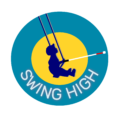Learning Begins With Us
SWING HIGH is a Non-profit Institution with a team of dedicated professional teachers and educationists, committed to assisting and catering to the needs of young blind children within the age of 3 to 6years old in Lagos State, Nigeria.
Our passion for learning means we achieve more than outstanding results. We strive to build confident and creative thinkers and aim at delivering a dynamic start.
We, at Swing High offer an echo-friendly, supportive and inspirational environments for young blind children to learn and grow with us.
We are an early childhood pre-school focused on Orientation and Mobility, Cognitive and Fine Motor Development, Sensory Stimulation and Exploration, social-emotional development, early literacy and numeracy and among others. Our students walk out with the character and confidence to make their mark in the world,
Swing High at a Glance
If we want the blind children to succeed in life, we have to give them a dynamic start in life. Please join me, and let’s make a change.
Joshua – The Founder
Our Tailored and Specialized Curriculum Overview
Swing High aims at offering all our students a broad and balanced curriculum that provides rewarding and stimulating activities to prepare them for the best social,confident and independent life.
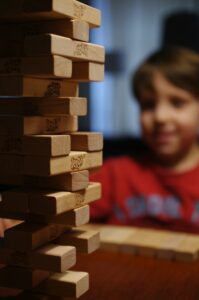
Cognitive and Fine Motor Development
Cognitive and fine motor development are pivotal for children's growth, influencing thinking, memory, and motor skills. In preschool-aged blind children, these domains are interlinked, impacting their ability to learn, reason, and engage with the world around them effectively.

Sensory Stimulation and Exploration
Sensory stimulation and exploration are fundamental for all children's development, but they take on particular importance for blind children. Blindness alters the way individuals perceive and interact with the world, necessitating alternative methods for sensory exploration and stimulation.
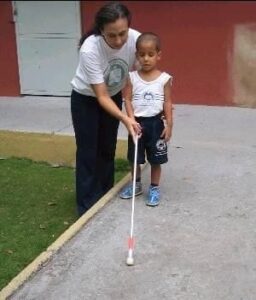
Orientation and Mobility
These skills are essential for blind children, enabling them to navigate their surroundings independently. Through techniques like auditory cues, tactile landmarks, and orientation aids, blind individuals can develop spatial awareness and travel safely.
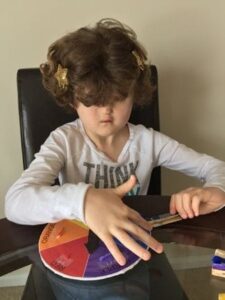
Daily living chores
Necessary for blind children's independence and skill development. Through tactile cues, adaptive tools, and structured instruction, blind children can learn tasks like cooking, cleaning, and personal care, fostering self-reliance and confidence.
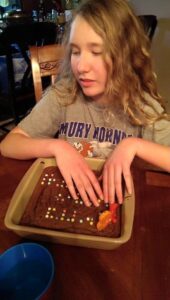
Entrance to literacy
This involves mastering Braille and accessing accessible reading materials. Through tactile literacy tools, auditory resources, and adaptive technology, blind children can embark on a journey to literacy, unlocking a world of knowledge and imagination.
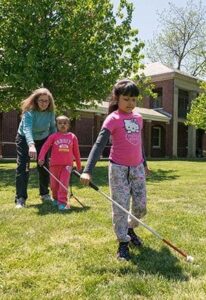
Language and communication
Blind children often rely on auditory and tactile modalities. Through Braille, verbal interactions, and assistive devices, blind children can acquire language skills and engage in meaningful communication, facilitating social connections and learning opportunities.
